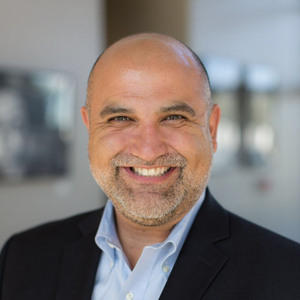The following post is part two of a series examining how Taylor Swift's shrewd business strategies contributed to her massive success. Part one of this series is here.
Taylor and Gen Z (born 1997–2009/2012)
Gen Z is notable for being the first generation to have their own powerful marketing influence — they are aware how much “messaging” is aimed at them and, in response, have used social media to develop both their own “viral” marketing as well as pointed pushback against corporate marketing they find disingenuous. This general skepticism about corporations and large institutions — along with their parents’ job losses during the 2008 recession and COVID-19 pandemic — helped spawn their great interest in self-employment, entrepreneurship, start-ups and innovation.
With much of their social life online, they are “global citizens” — not limited by national borders, cultural restrictions or economic divisions — and thus expect activism and action on issues of climate change, economic inequality, and DEI. In general, they are moderately liberal and more financially conservative than their Millennial predecessors. A key issue for them is mental wellness — they tend to be transparent and open about anxiety, depression, stress and seeking support from healthcare professionals such as therapists and counselors — it is the new normal. Generation Z continues to experience increasing cases of ADD and studies indicate that their attention spans are shorter than previous generations.
Swift is in the “sweet spot” of each of these. Her much-publicized battle for ownership of her original recordings — with the record company that signed her at age 15 — became a cause célébre in the industry and caused several other artists to seek greater control over their own work. Her own masterful use of various social media (see “Gen Alpha,” below) has created an intentional and yet apparently-personal and authentic connection with her fans. Her ability to advocate for causes without explicitly antagonizing those who disagree keeps her from being easily pigeonholed into a specific ideological camp.
Taylor and Gen Alpha (born 2010/2013–present)
While this generation are not even teenagers yet, it would be short-sighted to ignore their cultural and economic impact, both present and future. They are coming of age with a very different understanding of brand. In a time when longstanding categories of identity — gender, sexuality, religion, marriage, parenting, etc. — are under question, brand has become an important way of choosing identity. But that identity is not necessarily about looking good or being popular — rather, do the brands you support truly reflect your values, in both what they say and what they do?
Research finds Alphas to be the most ethnically diverse generation in US history. They know what the issues are — mental health, renewable resources and recycling, the role of AI, cultural and political division and
the seeming non-existence of “the center.” They are second-generation digital natives and are adept at building community online. Conversely, despite having connections worldwide, when it comes to where to live, they prioritize closeness to family and friends over economic opportunity and independence.
Swift is again in touch with these tendencies. She is certainly a brand — her sales make it hard to dispute that — but she is also a person, and a person that her fans have come to care very much about. Some of this is due to her rich, intriguing, carefully-maintained-yet-apparently-transparent online presence. Her willingness to play “the long game” — by dropping Easter Eggs and hints well in advance of a tour or album release, or by being vulnerable about her own emotional state — has cultivated followers (“Swifties”) who read every word of every post, looking to be “on the inside.” Those posts then generate exponentially-expanding online conversations which eventually break through into culture-wide awareness.

The Taylor lessons: What have we learned?
If you are attempting to market to either a specific generation or to a broader audience, it can be helpful to learn about generations.
A multi-generational marketing campaign can and should speak to each subgroup without offending or excluding others.
Any kind of a divisive campaign (“don’t be one of them, be one of us!”) may work well for a niche audience (like Lamborghinis) but will likely limit your scope.
If you can commit to a smaller audience at first — an audience that seems to share at least some of your values — and communicate with them in a vulnerable and transparent way, they can become your marketing missionaries at next to no cost to you.
You (probably) can’t fake vulnerability. Remember the hypocrisy-radar.
Be willing to use Easter Eggs or secret news or actual questions for your followers, but it needs to be actual content, not 5% discount coupons. Fans love the idea of being on the inside (especially if you’re asking for their input), but it only takes one crass promotion, disguised as an Easter Egg, to kill your credibility.
Use social media. Use social media. Use social media. If you’re not a great writer, find someone who knows how to create a good post. And humor is great if (a) it’s not mean, and (b) it’s actually humorous. Our favorite line from Spinal Tap is “it’s such a fine line between stupid and clever…”
Apply to Crowell School of Business.
Dr. Jake Aguas, associate professor of management, at Biola, co-led an international study tour to Beijing and Shanghai, China and Hong Kong, instructing on culture, behavior, and economics in modern China, and currently teaches a component of the high-profile course on Taylor Swift at UC Berkeley featured on CBS News and NFL broadcasts. Aguas consults internationally, helping leaders build stronger organizations through their people and processes. He specializes in leadership development and strategy, team building, training and development, coaching, and the design and implementation of global human resource management functions.
Read part two of the series: The Taylor Swift Effect: More Lessons for Entrepreneurs
 Biola University
Biola University.jpg)


.jpg)


.jpg)